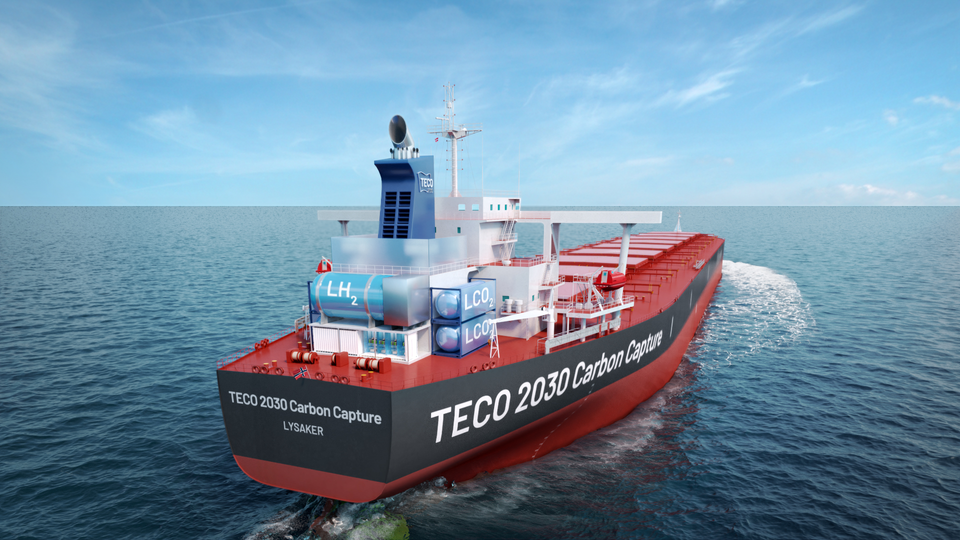TECO 2030 ASA (OSE: TECO) has signed a Memorandum of Understanding with Chart Industries, Inc. (Chart) (NYSE: GTLS) to jointly develop technological solutions that will capture carbon dioxide (CO₂) emitted by ships and subsequently store it in liquid form.

“When the new CO2 capture integration that we are collaborating with Chart Industries, Inc. and Sustainable Energy Solutions (SES) on is ready, it will enable ships to capture and store the CO2 that they would otherwise have emitted into the air, and which would thereby have contributed to climate change,” says Stian Aakre, CEO of TECO 2030 AS.
The agreement between the Norwegian company TECO 2030 and the American manufacturer Chart Industries, Inc. involves the joint development of onboard carbon capture solutions for ships using the Cryogenic Carbon CaptureTM (CCC) technology developed by SES, which was acquired by Chart Industries, Inc. in December 2020.
This innovative technology, which utilizes Chart Industries, Inc.’s expertise in cryogenic equipment and systems along with SES’s patented and proven technology, will separate the CO2 from the ships’ exhaust gases, resulting in a high purity liquid CO2 product. The liquid CO2 is then stored onboard in cryogenic storage tanks until the ship reaches port.
When it has been offloaded from the ship, the CO2 can then either be permanently stored in geological formations underground or be put to beneficial use in CO2-consuming industries, such as the agricultural, industrial, energy, or food and beverage sectors.
Will help ships comply with environmental legislation
When fully developed, the carbon capture solution will become available as a key element in the TECO 2030 Future Funnel, an exhaust gas cleaning system for ships developed by TECO 2030.
“At TECO 2030, our ambition is to help ships become more environmentally friendly as well as enable them to comply with emerging climate legislation,” says Aakre. “We believe carbon capture for ships will become one of several measures needed for the shipping industry to reach global decarbonisation goals.”
Carbon capture and storage (CCS) is the process of capturing emitted CO2 and transporting it to a storage site to prevent it from entering the atmosphere as a greenhouse gas. One of the challenges with carbon capture onboard ships is that the storing of CO2 is space consuming, and that space onboard ships is rather limited. Each tonne of fossil fuel consumed by ships leads to approximately three tonnes of CO2 emissions.
“We are excited to bring our carbon capture process expertise to the maritime industry with a partner like TECO 2030 that is dedicated to solving the emissions challenges facing ship-owners today,” says Jill Evanko, CEO and President of Chart Industries, Inc. “The solutions that are developed will help enable the shipping industry to reach the greenhouse gas emissions goals for 2030 and 2050 set forth by the International Maritime Organization.”
Green transition within the shipping industry
The International Maritime Organization (IMO) aims to reduce carbon intensity in international shipping by 40% by 2030, and to cut the total annual greenhouse gas emissions from international shipping by at least 50% by 2050 compared to 2008.
Ship-owners across the world will therefore have to do something to make their vessels more climate-friendly, and TECO 2030 will help them with that.
In addition to exhaust gas cleaning systems for ships, TECO 2030 is also developing hydrogen fuel cells for the maritime industry. These will enable ships to switch from fossil fuels to green hydrogen – which is hydrogen produced by renewable energy – and thereby become completely emissions-free.
Source: TECO 2030